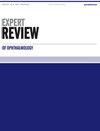增殖性糖尿病视网膜病变玻璃体切除术前玻璃体内注射抗VEGF作为辅助治疗的适当时间安排,荟萃分析
IF 0.9
Q4 OPHTHALMOLOGY
引用次数: 0
摘要
摘要背景许多研究介绍了玻璃体内注射抗血管内皮生长因子(VEGFs)作为一种新的策略,用于治疗严重增殖性糖尿病视网膜病变(PDR)患者更安全、更方便的玻璃体切除术。虽然应该记住可能的副作用,如玻璃体视网膜纤维化的进展,但可以通过适当的术前注射时间来预防这些副作用。研究设计和方法本研究基于系统综述指南,分四个步骤进行:搜索策略的定义、研究的选择和评估、纳入和排除标准的检查以及统计分析。纳入了18项临床试验,总样本量为1165名患者。根据注射时间,患者被分为三组:注射72 小时,注射3-7 天,注射7–21 手术前几天。结果术中出血风险最低、手术时间最短、对硅油(SO)填塞需求最低的是注射组7-21 手术前几天。注射组手术中医源性视网膜断裂的发生率和放松视网膜切开术的必要性72 术前数小时低于其他两组。然而,关于放松性视网膜切开术的要求、注射SO的必要性以及医源性视网膜破裂的发生,数据有限。结论荟萃分析显示,为了预防牵引并发症,建议在3 手术前几天。本文章由计算机程序翻译,如有差异,请以英文原文为准。
Appropriate timing schedule for intravitreal anti-VEGF injection as adjuvant therapy before pars-plana vitrectomy in proliferative diabetic retinopathy, a meta analysis
ABSTRACT Background Many studies introduced intravitreal injections of anti-vascular endothelial growth factors (VEGFs) as a new strategy for safer and more convenient vitrectomy in patients with severe proliferative diabetic retinopathy (PDR). While possible side effects such as progression of vitreoretinal fibrosis should be kept in mind, these may be prevented by proper preoperative timing of injection. Research design and methods This study was conducted based on the systematic review guidelines in four steps: definition of search strategy, selecting and evaluating studies, checking inclusion and exclusion criteria, and statistical analysis. Eighteen clinical trials with a total sample size of 1165 patients were included. According to the timing of injection, patients were divided into three groups: injection 72 hours, injection 3–7 days, and injection 7–21 days before surgery. Results The lowest risk of intraoperative hemorrhage, the minimum duration of surgery and the lowest need for silicone oil (SO) tamponade was in the injection group 7–21 days before surgery. The rate of iatrogenic retinal break during surgery and the necessity for relaxing retinotomy in the injection group 72 hours before surgery was lower than the other two groups. However, there were limited data regarding the requirement of relaxing retinotomy, the need to inject SO, and the occurrence of iatrogenic retinal break. Conclusions This meta-analysis showed, to prevent tractional complications, it is recommended to inject within 3 days before surgery.
求助全文
通过发布文献求助,成功后即可免费获取论文全文。
去求助
来源期刊

Expert Review of Ophthalmology
Health Professions-Optometry
CiteScore
1.40
自引率
0.00%
发文量
39
期刊介绍:
The worldwide problem of visual impairment is set to increase, as we are seeing increased longevity in developed countries. This will produce a crisis in vision care unless concerted action is taken. The substantial value that ophthalmic interventions confer to patients with eye diseases has led to intense research efforts in this area in recent years, with corresponding improvements in treatment, ophthalmic instrumentation and surgical techniques. As a result, the future for ophthalmology holds great promise as further exciting and innovative developments unfold.
 求助内容:
求助内容: 应助结果提醒方式:
应助结果提醒方式:


